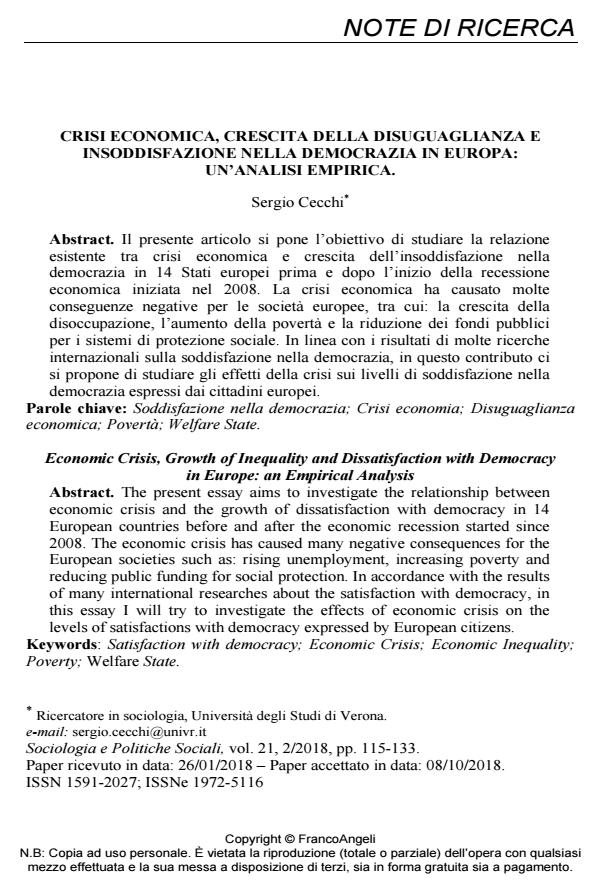Economic Crisis, Growth of Inequality and Dissatisfaction with Democracy in Europe: an Empirical Analysis
Journal title SOCIOLOGIA E POLITICHE SOCIALI
Author/s Sergio Cecchi
Publishing Year 2018 Issue 2018/2
Language Italian Pages 19 P. 115-133 File size 299 KB
DOI 10.3280/SP2018-002006
DOI is like a bar code for intellectual property: to have more infomation
click here
Below, you can see the article first page
If you want to buy this article in PDF format, you can do it, following the instructions to buy download credits

FrancoAngeli is member of Publishers International Linking Association, Inc (PILA), a not-for-profit association which run the CrossRef service enabling links to and from online scholarly content.
The present essay aims to investigate the relationship between economic crisis and the growth of dissatisfaction with democracy in 14 European countries before and after the economic recession started since 2008. The economic crisis has caused many negative consequences for the European societies such as: rising unemployment, increasing poverty and reducing public funding for social protection. In accordance with the results of many international researches about the satisfaction with democracy, in this essay I will try to investigate the effects of economic crisis on the levels of satisfactions with democracy expressed by European citizens.
Keywords: Satisfaction with democracy; Economic Crisis; Economic Inequality; Poverty; Welfare State.
Sergio Cecchi, Crisi economica, crescita della disuguaglianza e insoddisfazione nella democrazia in europa: un’analisi empirica. in "SOCIOLOGIA E POLITICHE SOCIALI" 2/2018, pp 115-133, DOI: 10.3280/SP2018-002006